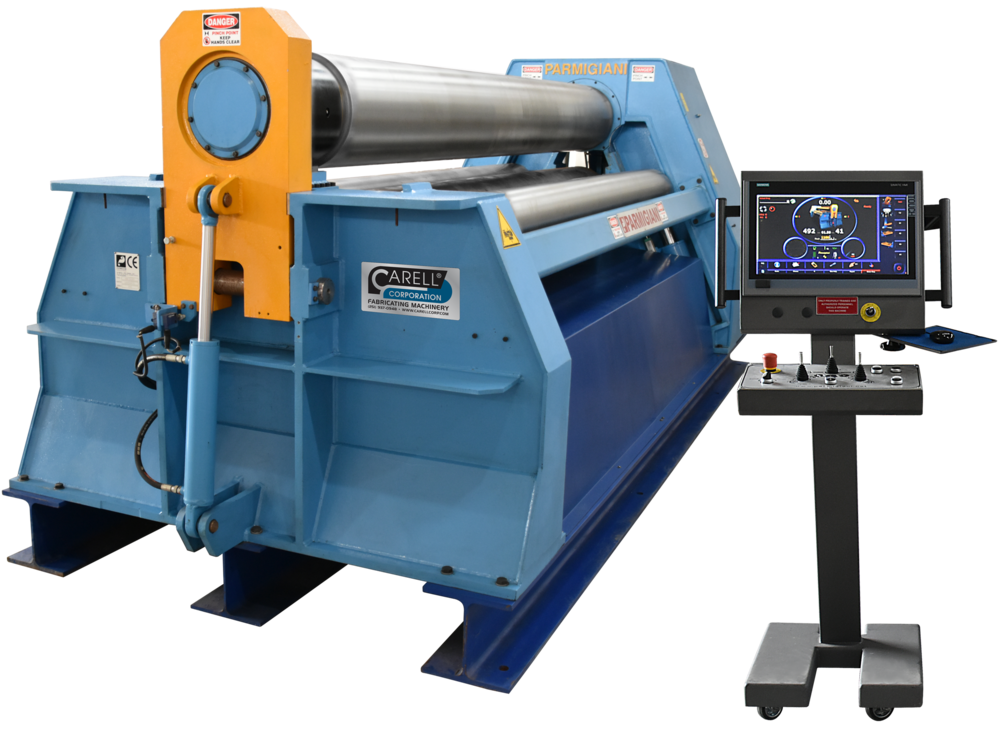Rollers
Rollers are machines used for shaping, forming, or compacting materials by passing them through a series of rotating cylindrical rollers. The rollers exert pressure on the material, altering its shape or thickness. Rollers are commonly used in industries such as printing, paper manufacturing, plastic processing, and metalworking. They can be utilized for tasks like flattening, calendering, laminating, or even creating specific surface patterns.

Benefits of Rollers:
Rollers offer several benefits across various industries and applications. Here are some advantages of using rollers:
Shaping and Forming
Rollers are efficient machines for shaping and forming materials. By passing the material through a series of rollers with different configurations, such as smooth, engraved, or patterned surfaces, the material can be molded into the desired shape or contour. Rollers enable precise control over the shaping process, resulting in consistent and accurate results.
Surface Treatment and Finishing
Rollers can be used for various surface treatments and finishes. Depending on the roller's surface characteristics, materials can be textured, embossed, polished, or given specific patterns. This allows for customization and enhancement of the material's aesthetic appearance, functionality, or performance.
Uniformity and Consistency
Rollers ensure uniformity and consistency in the processed materials. As the material passes through the rollers, they apply pressure evenly across the surface, resulting in consistent thickness, shape, or texture throughout the material. This uniformity is critical for achieving consistent quality and appearance in the final product.
Versatility
Rollers offer versatility in terms of the materials they can process. They can handle a wide range of materials, including paper, plastics, textiles, metals, and more. With adjustable settings and different roller configurations, they can accommodate various material thicknesses, properties, and surface requirements.
Easy Maintenance and Durability
Rollers are generally durable machines that require minimal maintenance. With proper cleaning and periodic inspections, rollers can operate reliably for extended periods. Regular maintenance ensures optimal performance and longevity of the rollers, contributing to cost savings and uninterrupted production.
Thickness Control
Rollers can be used to control the thickness of materials. By adjusting the gap or pressure between the rollers, materials can be compressed or spread out evenly to achieve the desired thickness. This is particularly important in industries such as paper manufacturing, plastic processing, and metalworking, where precise thickness control is crucial for product quality and performance.
Increased Productivity
Rollers are known for their high productivity rates. They can process materials continuously and at high speeds, enabling efficient production and reducing manufacturing time. Rollers are often integrated into automated production lines, further enhancing productivity by minimizing manual handling and intervention.
Material Compaction and Consolidation
Rollers are effective in compacting or consolidating materials. By exerting pressure on the material, rollers can remove air pockets, eliminate voids, and enhance the material's density and structural integrity. This is beneficial in applications where material strength, stability, or resistance to deformation are important factors.
Cost-Effectiveness
Rollers provide cost-effective solutions for material shaping, forming, or finishing processes. They offer efficient and high-speed processing, reducing labor costs and increasing overall production efficiency. Additionally, the ability to control thickness, texture, or surface patterns with rollers can eliminate the need for additional processing steps or specialized equipment.

